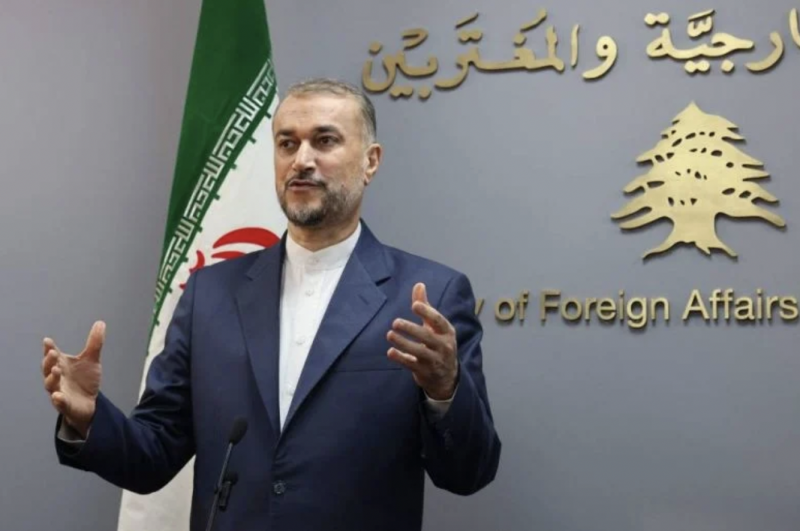
Iranian Foreign Minister Hossein Amir-Abdollahian at a press conference in Beirut, Feb. 10, 2024. (Credit: Anwar Amro/AFP)
Iranian diplomatic chief Hossein Amir-Abdollahian said in Beirut on Saturday that a large-scale Israeli offensive against Lebanon would "mark the end" of Israeli Prime Minister Benjamin Netanyahu.
"Any action by the Zionist regime to launch a large-scale attack on Lebanon would mark the end of Netanyahu," Amir-Abdollahian told a news conference at the end of his third visit to Lebanon since the start of the Hamas-Israel war.
Earlier this week, the Lebanese authorities reported that the head of French diplomacy, Stéphane Séjourné, who was visiting Beirut at the time, had warned them that Israel could launch a war against Lebanon "to bring home" the tens of thousands of inhabitants evacuated from areas of northern Israel, close to the border with Lebanon.
According to the Iranian minister, "the Zionist regime will never be able to fight on two fronts." He also stressed that "only the Palestinian nation and Palestinian groups have the exclusive right to determine their own destiny."
Earlier in the day, Abdollahian met Hezbollah Secretary General Hassan Nasrallah, in the presence of Iranian Ambassador Mojtaba Amani. According to a statement from the party, relayed by the al-Markazia agency, the talks focused on "the latest political and security developments in the region, particularly in the Gaza Strip and southern Lebanon, as well as on other Resistance fronts."
According to al-Markazia, Nasrallah declared at the end of the meeting that "the resistance is now an important factor in regional equations," believing that the victory of the Palestinian resistance is "inevitable" and that the Israeli army is experiencing "a strategic crisis." Abdollahian felt that "the Palestinian resistance is working with wisdom and strength."
Visiting Lebanon since Friday, the head of Iranian diplomacy also held talks with Prime Minister Najib Mikati. At the end of the meeting, he reiterated his country's support for "the stability and security of Lebanon," castigating attempts by some "to stir up trouble between the government, the people and the resistance in this country." For him, "developments on the ground in Gaza today are moving towards a political solution, even if [Israeli Prime Minister Benjamin] Netanyahu wants war," believing that it is up to the Palestinians to decide on the post-war situation in their country.
Mikati described the regional situation as "changing and complicated," stressing that Lebanon aspires to peace in the region and an end to the war in Gaza "in order to contain the possibility of its spread in the region."
'Lebanon does not seek war'
Abdollahian also held talks with the Speaker of the Lebanese Parliament, Nabih Berri, and the Lebanese Foreign Minister, Abdallah Bou Habib. At a joint press conference with his counterpart, the latter asserted that "Lebanon does not seek war."
He reiterated the need to "implement UN Security Council Resolution 1701 [which put an end to the war between Israel and Hezbollah in 2006] and stop Israeli aggression."
Abdollahian affirmed that for "Iran and Lebanon, war is not a solution," and assured that the two countries had "never sought to extend" the war.
The Iranian foreign minister's visit comes at a time when Hezbollah and Israel have been engaged in fighting on the Lebanese-Israeli border since Oct. 8.
This article was originally published in L'Orient-Le Jour.